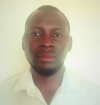Matthew Henderson George
ID:
|
Chimpanzee communication and its function in the regulation of fission-fusion social dynamics
REFNo: NS92ES
- Enhance overall understanding of gestural and vocal communication of East Africa Chimpanzees with a focus on the understudied female sex
- Understand how female chimpanzees use short-distance gestures with their infants and long-distance vocalizations to maintain fission-fusion dynamics
- Which gestural or postural markers are used by females and their infants specifically before joint travel
- What behavioural cues produced by infants and mothers differ prior to successful joint travel of all forms
-How behavioral context affects the pant-hoot structure in female chimpanzees
- How individual life-characteristics differences affect pant-hoot vocalizations
|
USA |
2019-08-06 |
2022-08-06 |
Natural Sciences |
|
Degree Award |

|
Kananura Muhumuza Rornald
ID: UNCST-2019-R000239
|
Child health and survival in Central Eastern Uganda
REFNo: HS395ES
The objectives of the study are to: examine maternal and neonatal mortality social and institutional drivers in central eastern Uganda; and establish the role of public authority in shaping maternal and child health in central eastern Uganda.
|
Uganda |
2019-08-06 |
2022-08-06 |
Medical and Health Sciences |
|
Degree Award |

|
GERALD AHABWE ZIHEMBIRE
ID:
|
Local Innovation in African cities: A critical assessment of user experiences of prepaid technology for water services in Kampala
REFNo: SS315ES
1. To track the background of prepayment services in water services in Kampala
2. To assess NWSC capacity in managing prepayment in utility services in Kampala
3. To identify user experiences with prepayment in utility services in Kampala
4. To propose strategies for improving prepayment technology in water services in Kampala.
|
Uganda |
2019-08-06 |
2022-08-06 |
Social Science and Humanities |
|
Non-degree Award |

|
Paula Rauschendorf Kristina
ID:
|
Perspectives of officials, health professionals and patients on surgical care in Eastern Uganda – a qualitative study in the districts surrounding Jinja, Uganda
REFNo: HS409ES
This study hopes to provide health care policy makers and providers with further information on how to better cater their surgical services towards the population’s needs and demands. This will hopefully help to allocate resources in a more effective manner and improve access to surgery and health care utilization in general as well as for certain rarer conditions.
Specific Objectives:
a) Investigating underlying beliefs that lead to decisions in offering and using surgical care in Uganda.
b) Finding out about the function of surgical health service facilities and the referral system in the proximity of Jinja.
c) Investigating how the integration of highly specialized short-term surgical services by external specialist into the local health systems can best be achieved, since it is an organisational challenge for information, medical test, appointments, preparation and post-surgical care.
d) Describing the predominant surgical conditions in the perspectives of populations, providers and planners.
e) Exploring the individual and communal views on reasons for seeking surgical care or refraining from it.
f) Identifying possible necessary messages to the general population, e.g. about the urgency and treatability of certain surgical conditions.
g) Examining social support with regard to possible ‘soft barriers’ to surgical care, while also keeping in mind other barriers (in financing and organization) like costs as well as transport and waiting time.
h) Identifying obstacles to reaching optimum care in all areas of knowledge, attitudes and practices (KAP) on all sides.
i) Describing the perceived need of surgical conditions, especially regarding perception of symptoms and consequences thereof.
j) Comparing these perceived needs with the evaluated needs as described by providers, planners and reports.
k) Examining interactions between patients and health care providers and the process of care delivery from patients’ and providers’ perspectives.
l) Finding out about perceived health status and consumer satisfaction (outcomes) of patients before and after surgery and factors that influence these outcomes.
m) Comparing these perceptions and satisfaction with the evaluated health status (outcomes) as summarized by providers, planners and reports.
|
Germany |
2019-08-06 |
2022-08-06 |
Medical and Health Sciences |
|
Degree Award |

|
Andrew Lukyamuzi
ID:
|
A DYNAMIC MODEL FOR PREDICTION OF FOOD INSECURITY
REFNo: IS17ES
1. To investigate techniques that will be used in the model selection and integration of existing models in relation to prediction of food insecurity.
2. To design a Dynamic Model that is capable of intelligently selecting suitable models to be used in prediction of food insecurity.
3. To test and validate the proposed model as means of demonstrating the mechanism
and viability of this model.
|
Uganda |
2019-08-06 |
2022-08-06 |
Social Science and Humanities |
|
Degree Award |

|
BARBARA NAGGAYI RITA
ID: UNCST-2019-R000062
|
EVALUATION OF AN UNDERGRADUATE STUDENT COMMUNITY ENGAGEMENT PROGRAM IN RURAL SOUTH WESTERN UGANDA: EXPLORING GLOBAL COMMUNITY ENGAGEMENT IN EAST AFRICA
REFNo: SS327ES
The main objective of this program is to provide hands-on rural volunteer community experience to Ugandan and international university students by providing an opportunity to engage communities to identify and work towards solutions to improve community well-being. The specific objectives of the program are:
1. To support communities in southwestern Uganda with health promotion, health messaging, and community strengthening by working with Village Health Teams, health facility staff, community leaders, and District Health Officers
2. To support students in developing skills with community engagement and other principles of MNCH
3. To provide HCU and MNCHI with opportunities to identify areas for future research in communities
4. To expose students to the strengths, innovations, and dynamics of rural southwestern Ugandan communities
5. To promote awareness about global health issues among national and international students
6. To encourage cross-cultural competency, bidirectional learning, and intercultural exchange of ideas
This study will use a mixed-methods approach to quantitatively measure changes in knowledge obtained by student participants as a result of their experiences, in addition to qualitative interviews to compile a narrative about student, health facility staff, facilitator, and community member perspectives. The results from this study will inform future quality improvement for the program and identify areas of strength and weakness to better serve students and the communities involved.
|
Uganda |
2019-08-06 |
2022-08-06 |
Social Science and Humanities |
|
Non-degree Award |

|
Agnes Kiragga
ID:
|
Reproductive Health Empowerment through Telehealth
REFNo: HS425ES
1-With input from a Community Advisory Board develop a user-centered mobile-based reproductive health content targeted for men through SMS, interactive voice response.
2-Assess the feasibility and acceptability of the Men’s Telehealth Information Package (mTIP) on uptake of family planning and reproductive health services.
3-Assess the men’s knowledge and attitudes towards family planning following receipt of the Men’s Telehealth Information Package (mTIP)
4-Assess uptake of and attitudes towards FP and couple communication among women whose spouses received the Men’s Telehealth Information Package (mTIP) intervention.
|
Uganda |
2019-08-06 |
2022-08-06 |
Medical and Health Sciences |
|
Non-degree Award |

|
Joseph Tamale
ID:
|
Investigating the role soils nutrients play in regulating soil greenhouse gas fluxes and nitrogen leaching from two contrasting ecosystems: a nutrient limited tropical forest and an intensively fertilized sugarcane plantation in Uganda.
REFNo: A46ES
This PhD study investigates how soil nutrients regulate soil greenhouse gas (GHG) fluxes and N leaching in a nutrient limited tropical forest and an intensively fertilized sugarcane plantation in northwestern Uganda. More specifically, the study aims to: (1) investigate how nutrient limitations affect soil GHG fluxes in a tropical rainforest, and (2) quantify how the conversion from natural forest to fertilizer-based sugarcane systems alters soil GHG fluxes, N leaching losses and nutrient use efficiency along a fertilizer intensification gradient (low, standard, and high fertilizer application)
|
Uganda |
2019-08-05 |
2022-08-05 |
Agricultural Sciences |
|
Degree Award |

|
Charles Mondo Kiiza
ID: UNCST-2019-R001281
|
Registry to study the demographics, socioeconomic and clinical factors, etiologies, pathophysiology, management, barriers to care, and outcomes of heart failure patients at St. Francis Hospital Nsambya.
REFNo: HS287ES
1. Estimate the incident rate of outcomes in HF patients in Uganda; assess social and lifestyle factors (incl. demographics, socioeconomic variables, clinical risk factors, diet, and health-related quality of life), etiologies and variations in treatment patterns that might influence mortality and morbidity.
2. Describe determinants of different HF phenotypes (HFpEF, HFrEF, and HF due to valvular heart disease and ALVD), and their management and outcomes.
3. Assess non-cardiac co-morbidities at enrolment, their incidence during the study, and how they influence outcomes from both cardiovascular and non-cardiovascular mortality and morbidity.
4. In a sub-study of approximately 50-60 patients, perform measures of frailty, cognitive and lung function, mental health, adherence to medication, and dietary assessment, with collection of blood and urine samples for central analysis, to further understand the pathophysiologic changes in HF and their relation to outcomes.
5. Describe patient and system barriers to HF care.
|
Uganda |
2019-07-30 |
2022-07-30 |
Medical and Health Sciences |
|
Non-degree Award |

|
Mohammed Lamorde
ID: UNCST-2019-R001293
|
Prevalence and Incidence of Atrial Fibrillation in HIV infection in Uganda.
REFNo: HS373ES
• Primary objective 1: To investigate the point-prevalence of AF by screening the outpatient clinic population at the Infectious Diseases Institute (IDI), Kampala (Uganda) using the iECG
• Primary objective 2: To study the incidence of AF by annual review of iECG within a long-term cohort of HIV patients that are being followed-up for ART outcomes at IDI (ALT-cohort).
• Secondary objective 1: Evaluate the performance of iECG against routine ECG measurements
• Secondary objective 2: To determine the risk factors associated with incident AF
|
Nigeria |
2019-07-30 |
2022-07-30 |
Medical and Health Sciences |
|
Non-degree Award |

|
Nicolette Manglos-Weber D
ID:
|
Religion and Community Caregivers in Uganda
REFNo: SS290ES
This research project investigates the overlapping fields of religion and social welfare provision in Uganda, with a focus on local community leaders who are caring for social welfare needs related to poverty and economic insecurity. It seeks to understand the role of religious beliefs, practices, and structures in the formation and success of such local community caregivers. It also seeks to evaluate the impact of local community caregivers relative to other types of social welfare providers within the religious and political fields. The aim is to produce several academic articles as well as an original book. This book would use portraits of Ugandan community caregivers to describe what makes such a person successful and how to emulate their efforts toward social transformation. It would also use these portraits as a means of instructing readers on the dynamics of religion and politics in post-colonial Africa.
|
USA |
2019-07-23 |
2022-07-23 |
Social Science and Humanities |
|
Non-degree Award |

|
Wakiko Ohira
ID:
|
Possible Roles of Traditional Roles in Resource-Rich Countries: Case of the Bunyoro Kingdom in Western Uganda
REFNo: SS291ES
Main Objectives of the Study
The main objective of the study is to explore and assess the roles of traditional authorities, the Bunyoro Kingdom, as part of the local politics as well as in winder political arena.
Specific Objectives of the Study
1. To understand perceptions of local residents living in Bunyoro towards the Bunyoro Kingdom in order to understand where the legitimacy of the traditional authority lies.
2. To understand the overlapping roles, if any, among traditional authority including chiefs and local government bodies. As Uganda is known for its decentralization policy as well as its recognition of traditional authority in the constitution, understanding the relations between traditional authority and local “government is crucial in this study.
3. To understand the region in the whole picture by examining the relations between the Bunyoro Kingdom and local residents living in Bunyoro as well as local government.
|
Japan |
2019-07-23 |
2022-07-23 |
Social Science and Humanities |
|
Degree Award |

|
Jonathan Kuttainen Joel
ID:
|
From rural to digital: the rise of e-money in developing economies
REFNo: SS293ES
This research project looks at the uptake of mobile money services in a rural setting of west Uganda. The project seeks to understand, as per the key research question, how mobile money has a positive effect on poverty alleviation within the context of the UN’s Sustainable Development Goals and the G20’s commitments to financial inclusion for the unbanked? It further aims to understand whether mobile money is a transformational technology, offering value to its users, or a displacing technology that propagates social and economic disparity, privileging a few at the expense of the many? In response to these questions, the research will take a case study approach to explore and evaluate the user experience of mobile money services in the context of a poor, rural region where a high proportion of the community is unbanked.
|
Australia |
2019-07-23 |
2022-07-23 |
Social Science and Humanities |
|
Degree Award |

|
Rachel Nanteza
ID:
|
Water user perceptions of the pre-paid meter system in the slums of Kampala: A Spatial and Institutional Analysi
REFNo: SS312ES
In Kampala-Uganda, the National Water and Sewerage Corporation (NWSC) is using pre-paid meter technology to provide water services to people living in slums. Shared PPM standpoints have been installed on both public and private land and can be used by anyone who has a token to access the system and can afford to pay for the water.
This study will investigate water users’ perceptions of the shared PPM system seeking to specifically uncover user insights on the processes of water access and withdrawal. To do that we will utilize GIS tools to map the shared PPMs within the slum and identify with users the different characteristics of the PPM system. In addition, we will investigate the different arrangements users have created to access tokens that could be used in the shared PPMs. At the end of the research, we may be able to identify some barriers to accessing and withdrawing water in the slums.
|
Uganda |
2019-07-23 |
2022-07-23 |
Social Science and Humanities |
|
Degree Award |

|
Jane Namugga
ID:
|
TELEHEALTH FOR CERVICAL CANCER SCREENING IN UGANDA
REFNo: HS400ES
1. To describe health workers and patients’ experiences and opinions of the Mobile colposcopy program for cervical cancer screening and management in Uganda. 2. To compare cervical cancer screening findings or impressions made using VIA alone vs VIA done with a mobile colposcopy. 3. To demonstrate the role of mobile colposcopy in training of health workers in cervical cancer screening.
|
Uganda |
2019-07-23 |
2022-07-23 |
Medical and Health Sciences |
|
Non-degree Award |
.jpg)
|
Nathan Tumwesigye
ID:
|
Evaluation of Health Outcomes and Satisfaction with Care in HIV-infected Patients Receiving Antiretroviral Therapy in Differentiated Service Delivery Models (DSDM) of HIV care in EC region, Uganda
REFNo: HS401ES
STUDY OBJECTIVE
The objective of this study is to determine satisfaction with care, retention, and viral suppression in HIV-infected patients receiving ART in DSD models at fourteen facilities in the EC region.
Specific Objectives:
1. To determine the level of and factors associated with client satisfaction with quality of HIV care services in the different differentiated service delivery models at fourteen health facilities in East Central Uganda
2. To determine viral load suppression rates in clients enrolled in the different HIV differentiated care service models at fourteen health facilities in East Central Uganda.
3. To determine 6 and 12 months retention-in-care rates in patients enrolled in the different HIV differentiated service delivery models at fourteen health facilities in East-Central Uganda.
|
Uganda |
2019-07-23 |
2022-07-23 |
Medical and Health Sciences |
|
Non-degree Award |

|
Leah Mbabazi
ID: UNCST-2019-R000099
|
FACTORS ASSOCIATED WITH UPTAKE OF CONTRACEPTIVES AMONG HIV POSITIVE WOMEN ON DOLUTEGRAVIR BASED ANTI-RETROVIRAL TREATMENT AT HEALTH CENTRES OF KAMPALA CAPITAL CITY AUTHORITY-UGANDA.
REFNo: HS406ES
1. To determine the level of uptake of contraceptives among HIV positive women of reproductive age who are on dolutegravir (DTG) based Antiretroviral treatment (ART)at IDI-KCCA Health centres.
2. To assess the different contraceptives utilized by HIV positive women of reproductive age who are on DTG based ART at IDI-KCCA Health centres.
3. To explore the knowledge on contraceptives among HIV positive women of reproductive age who are on DTG based ART at IDI-KCCA Health centres.
4. To determine the individual, social and health system factors that influence uptake of contraceptives HIV positive women of reproductive age who are on DTG based ART at IDI-KCCA Health centres.
|
Uganda |
2019-07-23 |
2022-07-23 |
Medical and Health Sciences |
|
Degree Award |

|
MARIAM BASAJJA
ID:
|
DESIGNING A FAIR DATA POINT FOR DIGITAL HEALTH IN UGANDA
REFNo: IS18ES
The main reason for this study is to help answer the following research questions;
• What are the digital health solutions piloted in Uganda and how sustainable are these?
• What are the reasons for lack of sustainability of pilot digital health solutions in Uganda?
• To what extent and in what way is lack of policy on data-management, data-sharing and data- analytics a contributing factor to the lack of sustainability of digital health solutions in Uganda?
• Can the introduction of the systematic use of FAIR data protocol through a FAIR Data point help overcome structural challenges to the development and maintenance of sustainable digital health solutions in Uganda?
• How can introduction of FAIR data support and strengthen accessibility of personal health data as well as depersonalized health data analytics.
• How can data-analytics of health data be propagated, integrated and maintained though a FAIR data point. 

|
Uganda |
2019-07-23 |
2022-07-23 |
Social Science and Humanities |
|
Degree Award |

|
JOEL MASAGAZI YAWE YAWE
ID:
|
Developing a model to manage burnout among teaching staff at private universities in Uganda.
REFNo: SS256ES
a) To explore ways how prolonged stressors can lead to burnout among teaching.
b) To examine the major causes of burnout among teaching staff.
c) To investigate ways how burnout can impact the performance of teaching staff.
d) To develop management model to address burnout among teaching staff.
|
Uganda |
2019-07-10 |
2022-07-10 |
Social Science and Humanities |
|
Degree Award |

|
Anthony Mugisha
ID:
|
Hearing their voices: Action research to support women’s agency and empowerment in livestock vaccine distribution, delivery and use in Rwanda, Uganda and Kenya
REFNo: A42ES
Objective #1: Gender analysis and baseline assessment- Identify and analyze the barriers, opportunities and strategies for improving women’s entry and participation in livestock ownership and vaccine value chain (VVC) in Rwanda, Uganda and Kenya.
• What gender, social, cultural, political, economic, technical barriers and perceptions impede women’s effective participation, define livestock ownership and decision making and prevent women from being beneficiaries of livestock vaccines as users, service providers and entrepreneurs?
• What factors and opportunities are needed or exist to enhance their participation in the VVC to increase livestock productivity and improve household food security?
Objective #2:VVC analysis- Conduct a VVC analysis focusing on PPR in Uganda, RVF in Rwanda and NCD in Kenya to determine if the VVC supports women empowerment and gender equality.
• What economic, socio-cultural, familial, legal, political and psychological networks shape the current VVC at the micro, meso and macro levels and how do these impact women small holder farmers? Who are VVC key players and how do they impact women empowerment and gender equality? What are the gender capacities (skills, knowledge, perceptions, attitudes, behavior) of the actors along the VVC?
Objective #3: Entry points- Test models that support women’s entry into the VVC and their impact on empowerment and livelihoods.
• What entry points exist along the VVC and how can they enhance women’s participation? What women’s agency and empowerment models address entrepreneurship, self-reliance, and cooperation?
• How can these models support women’s participation in and benefit from the VVC?
• What test models can support women’s entry and participation in the LOVVC?
• What is the impact of the models and what components have the potential to be scaled out and adapted to other community settings?
|
Uganda |
2019-07-10 |
2022-07-10 |
Agricultural Sciences |
|
Non-degree Award |

|
| View |
|
Sort By: |
|
|
|
| |
|